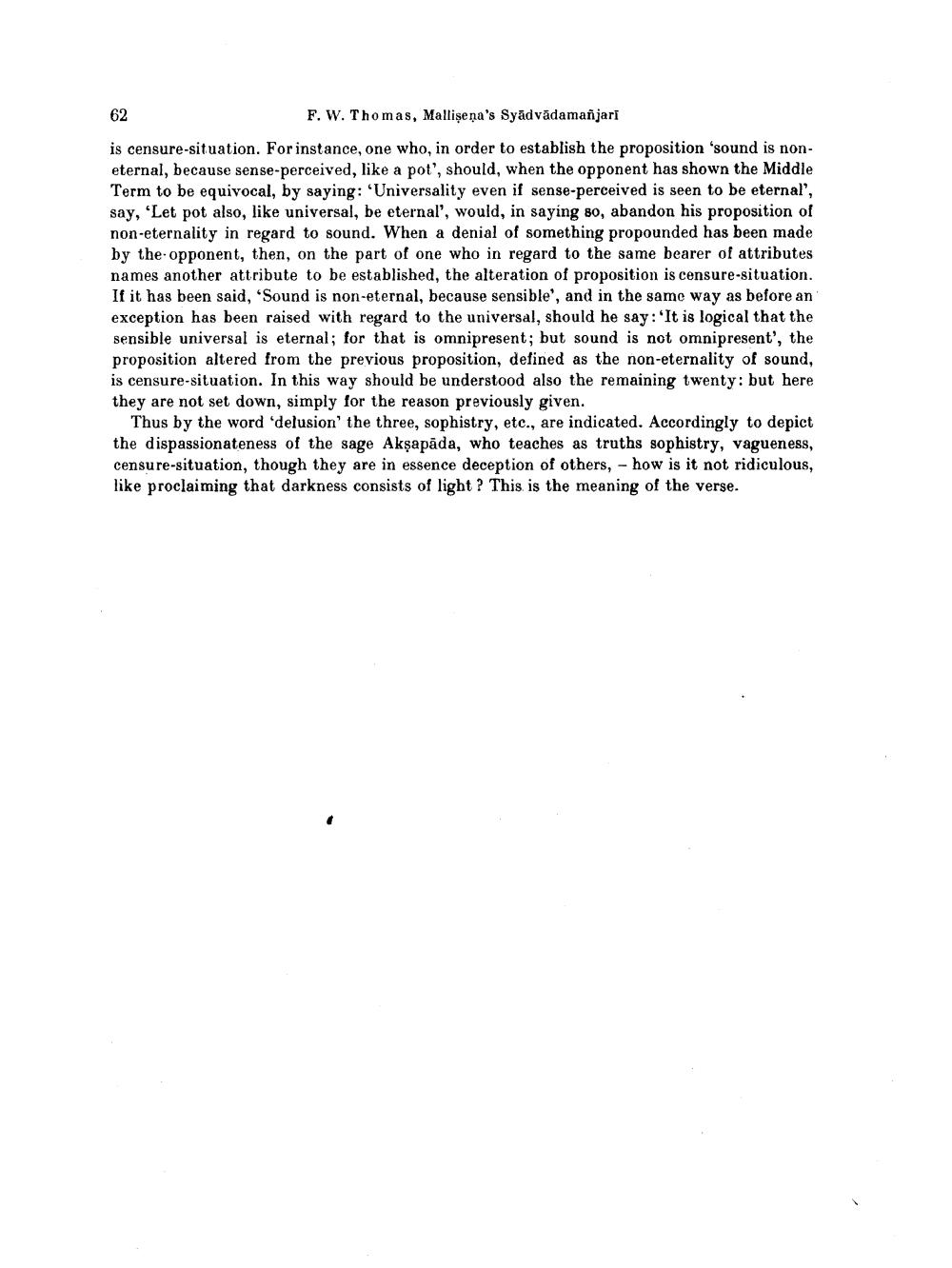________________
F.W. Thomas, Mallişena's Syādvādamañjari
is censure-situation. For instance, one who, in order to establish the proposition "sound is noneternal, because sense-perceived, like a pot', should, when the opponent has shown the Middle Term to be equivocal, by saying: 'Universality even if sense-perceived is seen to be eternal", say, 'Let pot also, like universal, be eternal', would, in saying so, abandon his proposition of non-eternality in regard to sound. When a denial of something propounded has been made by the opponent, then, on the part of one who in regard to the same bearer of attributes names another attribute to be established, the alteration of proposition is censure-situation. If it has been said, 'Sound is non-eternal, because sensible, and in the same way as before an exception has been raised with regard to the universal, should he say: 'It is logical that the sensible universal is eternal; for that is omnipresent; but sound is not omnipresent', the proposition altered from the previous proposition, defined as the non-eternality of sound, is censure-situation. In this way should be understood also the remaining twenty: but here they are not set down, simply for the reason previously given.
Thus by the word delusion' the three, sophistry, etc., are indicated. Accordingly to depict the dispassionateness of the sage Akşapāda, who teaches as truths sophistry, vagueness, censure-situation, though they are in essence deception of others, - how is it not ridiculous, like proclaiming that darkness consists of light? This is the meaning of the verse.




